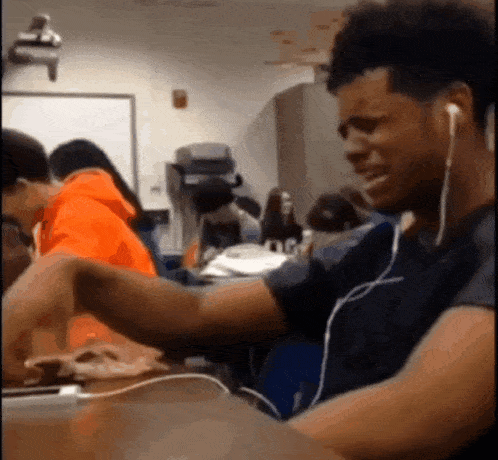Every year for the post-Oscars Governors Ball, celebrity chef Wolfgang Puck hunkers down to dream up an eccentric list of culinary choices for Academy Award nominees to sink their celebrity teeth into. And every year he seems to outdo himself.
This year, for instance, superstar nominees like Mahershala Ali, Ruth Negga, and Meryl Streep tucked into lobster corn dogs before ordering custom fish dishes at a poke bowl station. There was even smoked salmon on statuette-shaped crackers. But the most cinematic snack on this year’s menu was the gold-dusted popcorn.
Gold has long been culinary window dressing—in 2015, the Manila Social Club in Williamsburg trotted out a $100 24-carat-gold-leaf enfolded donut filled with jelly made from Cristal champagne, and a pizzeria in Toronto carries a $108 dollar slice topped with the stuff. But is eating gold okay to do? Zinc boosts immunity, copper helps our nervous systems, and iron is important in our circulatory. Could gold be an important part of our daily diet?
A quick search turns up many claims made about gold’s special powers. Ancient Egyptians ate gold to stimulate their life forces, say some. Eating colloidal gold nanoparticles, others say, will make you smarter. Even others claim it treats everything from arthritis to depression to heart disease. But it’s all pretty much hooey.
“There are no nutritional or health benefits associated with indulging in this extravagant food,” Deborah Orlick Levy, a nutrition expert told the Food Republic blog in an article about Manila Social Club’s donut last year.
But at least it’s not bad for you—or nutritionists like Levy seem to think as much. The FDA hasn’t approved any edible gold products, but the Agency for Toxic Substances and Disease Registry doesn’t list gold as a toxicant. Plus, TÜV Rheinland, an independent food-safety certification agency, has approved gold leaf as safe for your devouring pleasure. And Smithsonian.com reported in February 2014, “Gold’s immortality—the fact that it doesn’t interact with most compounds and thus doesn’t corrode—makes it essentially nontoxic to the body.”
Chefs have been putting gold on food for generations all over the world. Vark is a gold foil pressed onto Indian desserts, and gold leaf is commonly used in Japanese sweets. And who hasn’t tried the Swiss cinnamon schnapps, Goldschläger, which has bits of gold leaf floating and twirling seductively in it?
Sure, the stars of La La Land can rest easy as they shove handfuls of Puck’s blinged-out poppy-corn into their gaping maws as they fondle their presumptive Oscars. It just won’t make them any healthier.
















 A young teen cries while listening to music via
A young teen cries while listening to music via 
 A young couple waits in line at a coffee shopCanva
A young couple waits in line at a coffee shopCanva Gif of Eddie Murphy telling you to think
Gif of Eddie Murphy telling you to think


 Volunteers who drive homeless people to shelters talk with a person from Ukraine in Berlin on Jan. 7, 2026.
Volunteers who drive homeless people to shelters talk with a person from Ukraine in Berlin on Jan. 7, 2026.
 Tasks that stretch your brain just beyond its comfort zone, such as knitting and crocheting, can improve cognitive abilities over your lifespan – and doing them in a group setting brings an additional bonus for overall health.
Tasks that stretch your brain just beyond its comfort zone, such as knitting and crocheting, can improve cognitive abilities over your lifespan – and doing them in a group setting brings an additional bonus for overall health. Overdoing any task, whether it be weight training or sitting at the computer for too long, can overtax the muscles as well as the brain.
Overdoing any task, whether it be weight training or sitting at the computer for too long, can overtax the muscles as well as the brain.
 Leonard Cohen performs in Australia in 2009.Stefan Karpiniec/
Leonard Cohen performs in Australia in 2009.Stefan Karpiniec/  Enjoying a sunset.Photo credit
Enjoying a sunset.Photo credit